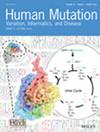TCIRG1 as a Novel Prognostic Biomarker Triggering Immune Infiltration in Renal Clear Cell Carcinoma: An Integrative Study of Single-Cell and Bulk Data
Abstract
Background
Tumor microenvironment (TME) is a significant factor regulating the malignant phenotype and drug resistance of kidney renal clear cell carcinoma (KIRC). The identification of biomarker signatures mediating immune infiltration in TME is of significance for prognostic assessment and personalized therapy of KIRC.
Methods
The gene set associated with immune cell populations in KIRC TME was extracted from the single-cell dataset GSE139555 using high-dimensional weighted coexpression network analysis (hdWGCNA). The bulk data from TCGA-KIRC were integrated to screen significant signatures in KIRC prognosis through Cox regression, and a combination of 101 machine learning algorithms was compared to prioritize feature genes for the construction of a novel prognostic model. Finally, LightGBM and XGBoost algorithms identified TCIRG1 as a key model feature and a novel biomarker in KIRC for experimental characterization using western blot, immunohistochemistry, multiple immunofluorescence (mIHC), subcutaneous tumor formation in nude mice, and Transwell assays.
Results
Single-cell data showed that the monocyte population varied most significantly in KIRC samples, and 150 candidate genes from monocytes were identified based on hdWGCNA. By integrating bulk TCGA-KIRC data and Cox regression, 15 prognosis-related genes were extracted as candidates for machine learning–powered training using 101 algorithm combinations, and nine genes were prioritized as feature variables to establish a prognostic model with good predictive performance on the overall survival of KIRC patients. Finally, TCIRG1 was identified as a novel biomarker signature from the prognostic model, and ultimately, by combining LightGBM and XGBoost algorithms, TCIRG1 was identified as a key characteristic signal for experimental validation and functional studies. Immunohistochemistry, cellular, and animal experiments showed that TCIRG1 expression was significantly elevated in KIRC samples, and its high expression was closely associated with adverse clinicopathological features. mIHC results demonstrated a significant positive correlation between TCIRG1 expression and immune cell infiltration in the KIRC TME, particularly with Treg cells.
Conclusions
TCIRG1 was identified and validated as a novel prognostic biomarker triggering immune infiltration in KIRC. The mechanisms and translational prospects of TCIRG1 in KIRC management will be explored in future work.


 求助内容:
求助内容: 应助结果提醒方式:
应助结果提醒方式:


